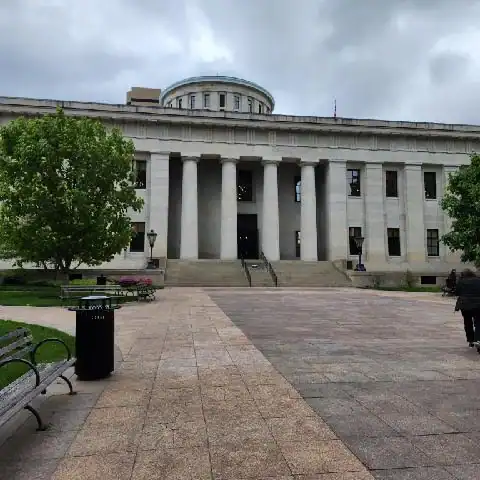By Angela Hay
On June 30, Governor Mike DeWine signed Ohio’s new budget bill for fiscal year 2026-27. According to a press release from the governor’s office, the bill serves as a tool to support children and families, strengthen the workforce, and invest in communities. DeWine says the plan will “make Ohio the best place for everyone to live their version of the American dream.”
The budget includes a 2.75% flat income tax rate, reducing taxes for people who earn more than $100,000 a year by 0.75%. This could result in a loss of approximately $1 billion to the General Revenue Fund (GRF), the primary source of funding for Medicaid, K-12 education, and many other social services.
Shari O’Brenski, president of the Cleveland Teachers Union, described this as “feeding the rich at the expense of the poor.”
“The only ones getting a break are the people who can most afford to pay taxes,” O’Brenski said. “It is a diabolical attempt to con the public into thinking they’re getting some sort of tax relief when in reality they’re starving K-12 public education. And, honestly, I believe that’s the goal.”
O’Brenski noted that House Speaker Matt Huffman has used his career to promote school vouchers, school choice, and Catholic education, all of which compete with public school dollars.
“(Huffman) would love to just wipe K-12 public education off the map,” O’Brenski said. “That is his passion at the expense of public schools.”
Public libraries were also targeted by the bill. Library supporters celebrated the governor’s veto of an expensive and time-consuming proposal meant to control the placement within the library of materials on sexual orientation and gender identity. They continue to worry about library funding, which is tied to the GRF. Because Ohio libraries currently receive 1.7% of the GRF, the flat tax reduction could result in a loss of $17 million in library funding.
In anticipation of the bill’s passage, Cleveland Mayor Justin M. Bibb spoke against two of the bill’s provisions, both related to a new stadium for the Cleveland Browns. In a public statement, he described being “deeply disappointed” by the budget’s use of a public subsidy to build a new stadium outside of downtown Cleveland. He also disapproved of the budget’s dismantling of the Modell Law, which legislates the relocation of sports teams. Both provisions were approved by the governor in the final budget.
Governor DeWine vetoed 67 other parts of the bill, most of which he described as being outside of public interest.
“The vast majority of voters have a grasp on what is happening,” O’Brenski said. “Speaker Huffman and his cronies are not as slick as they think they are. And we aren’t as dumb as they think we are. The only hope we have is that the public at large really pushes back against this, and ultimately, they’re going to have to push back at the ballot box.”
Angela Hay is a journalism student at Capital University in Columbus, graduating in December 2025. She has written for Capital Magazine, the student newspaper The Chimes, and university marketing channels. As a Cleveland Observer intern, she seeks out fresh voices and untold stories from Greater Cleveland.





